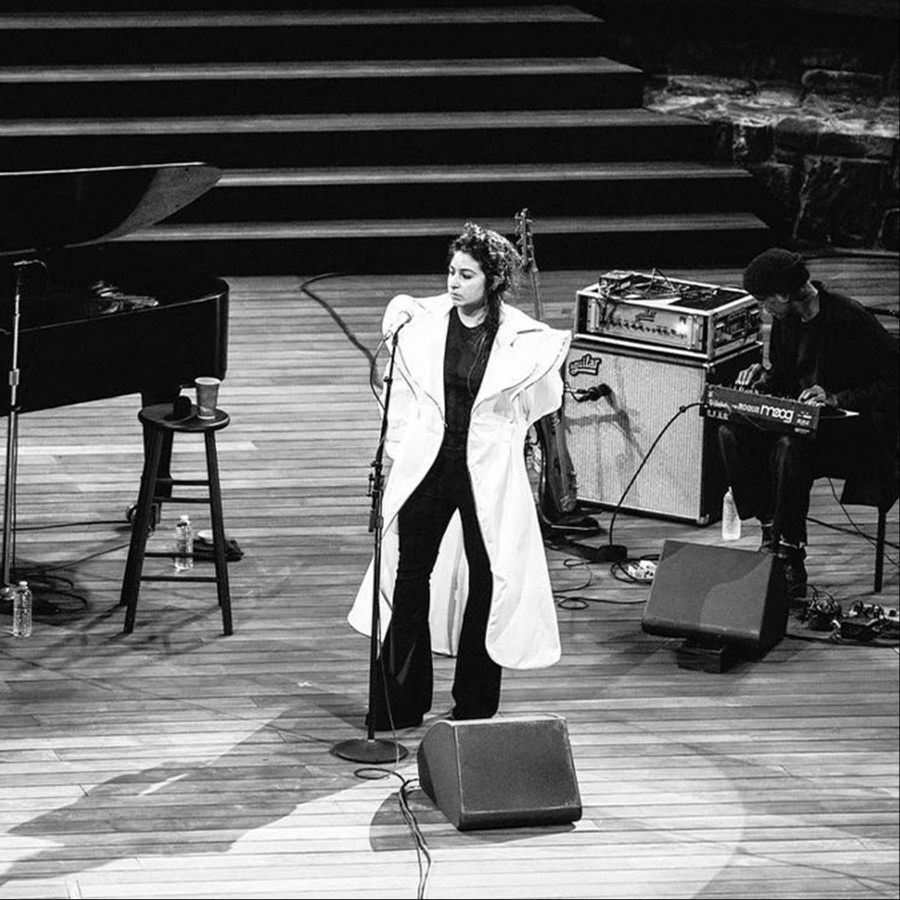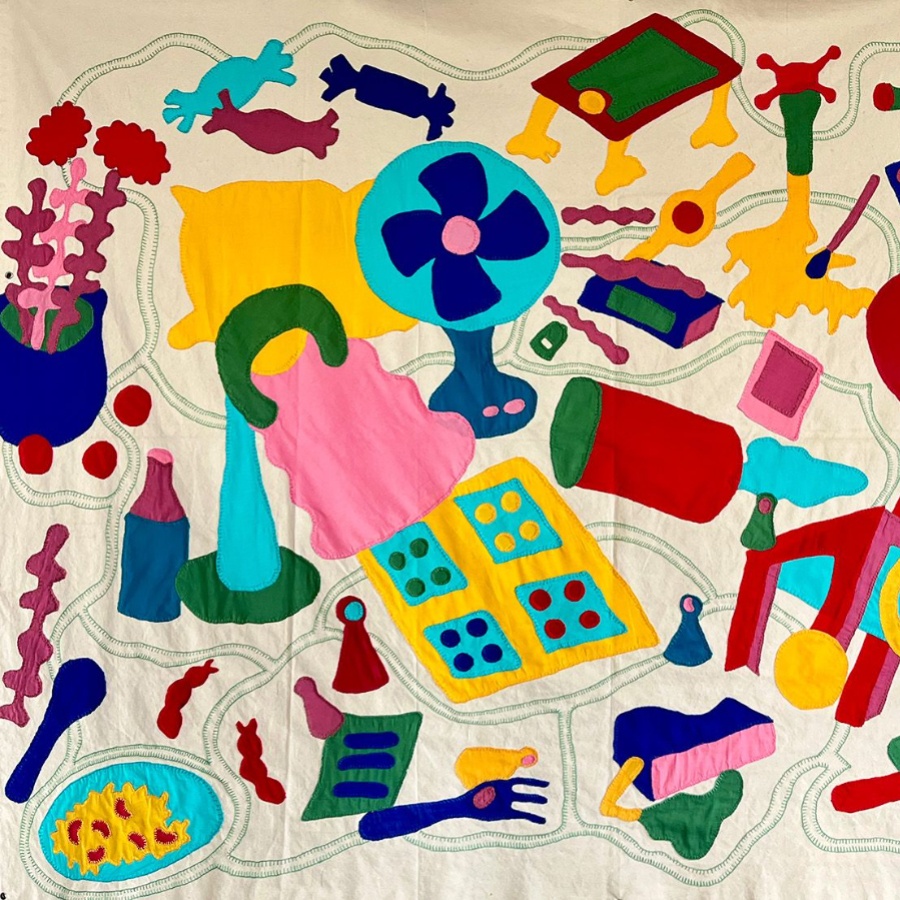There’s a scene in I Am: Celine Dion that features footage of the music video for her song ‘Ashes’ from the 2018 film Deadpool 2. Meant to be both a classic Dion power ballad and a satirical take on exactly that kind of song, the video ends with Deadpool telling her that her performance was too good for this film so they will need to redo it, because “this is not Titanic”. He explains, “You’re, like, an 11 and we need to get you down to, like, 5 or 5 and a half tops” so could she just phone it in? She points at her throat and says, “Listen. This thing only goes to 11. So beat it, Spiderman.”
That bit of banter gives a pretty accurate picture of who Celine Dion is. Funny, proud, and a perfectionist who doesn’t know how to underperform. But what happens when life forces you to do that, to give the world less than what it knows is your best? This is the question that I Am: Celine Dion, Peabody-winning director Irene Taylor’s latest documentary, on the global pop superstar, now streaming on Prime Video, explores.
The problem with most celebrity documentaries and biopics is that they’re too sanitised. They offer milquetoast glimpses into their subject’s life and predictably anodyne praise from friends, relatives, and professional rivals, as in the case of Federer: Twelve Final Days. Often, they tend to be just clean, feel-good, entertaining dramas, such as last year’s docu-series, Beckham, which gave us the viral ‘Be Honest’ meme, but never really revealed much about its legendary protagonist.
That is not a criticism one can level against Taylor’s film. First, the only person interviewed in this documentary is its subject (it has cameos from her sons and her physiotherapist, but they don’t talk about her). And second, this is not the story of the music icon’s rise to fame, her multiple awards and honours, her couple of hundred million record sales and record-breaking achievements, her glamorous life, her best days. Far from a hagiography or a rehearsed vanity project, this is a film about the worst time of her life: centred around her ongoing battle with Stiff Person Syndrome (SPS), a rare neurological disease that attacks the nervous system.
The problem with most celebrity documentaries is that they’re too sanitised. They offer milquetoast glimpses into their subject’s life and predictably anodyne praise from friends, relatives, and professional rivals. That is not a criticism one can level against Taylor’s film.
Dion fans would remember that the singer announced her diagnosis publicly in December 2022, but she had started noticing symptoms almost 20 years before knowing what it was. The film digs deep into her struggle with SPS, describing in harrowing detail the loss of balance that often made it difficult for her to walk, showing painful footage of voice and muscle spasms that rendered her unable to do the one thing she knows how to do: sing.
The movie is difficult to watch, especially for a fan. I first heard Celine Dion in 1994—I was 10 and her cover of Jennifer Rush’s ‘The Power of Love’ was a fixture on nighttime FM radio. A few years later came ‘Falling Into You’, ‘Because You Loved Me’, ‘It’s All Coming Back To Me Now’, and her version of Eric Carmen’s ‘All By Myself’, in which she hit that famously high F5. These songs became anthems at interschool music competitions, with tweens trying their best to leap across octaves like she did. And then, in 1997, Titanic happened, and with it, Celine Dion earned a permanent place in elevators, hotel lobbies, cafés, and my karaoke night set list.
For 30 years, Dion has been, to me, the definition of a big, powerful voice, of soaring finales performed with pinpoint precision. So to watch her struggle to reach a note, to see her tears of frustration when her voice wobbles or cracks, is extremely hard. Witnessing her in the throes of a full-body seizure, moaning and howling like a feral animal, her mouth twitching, her physiotherapist putting a spray up her nostril and trying to bring her spasming body under control, is traumatic—you will want to shut your eyes. But don’t. Because it’s important to Dion that you see this.
Celine Dion takes her responsibility as an artist seriously, and part of that is her duty to be honest with her audiences—for example, about why she started cancelling concerts. Initially, her team would give reasons like a sinus or ear infection. But “I can’t lie anymore,” she says, confessing to how she sometimes “cheated” when she knew her voice was spasming up during a show, turning the mic to the fans or tapping it as if it was faulty when she knew it wasn’t. “The lie is too heavy now.”
It takes a lot of humility to allow a movie like this to be made about you, to show the world this level of rawness and vulnerability, this viscerally humiliating pain. “I think I was very good; I think I had some stuff that was amazing,” she says. “But there’s been moments where...I knew they wanted Celine Dion. Who’s Celine Dion? The one who sang the highest note…whatever.” And then her voice gives out as she tries to sing a few lines of an old song, and she starts to cry, telling us how difficult it is for her to show us this imperfect version of herself. Right then, the scene cuts to an old recording of ‘My Heart Will Go On’, specifically the line We’ll stay forever this way, and you can’t help but feel like she is singing those words to her own voice, begging it to not abandon her.
There is some relief that comes by way of archival footage—of her happy childhood, how she always knew she wanted to “be an international star”, and flashes of her most iconic songs. But it’s clear that past glories are not the focus of this film; they are just there to underscore how different Dion’s life is today. Her physiotherapy and medication; her greying hair; her no make-up face with wrinkles and age spots; her voice that was once widely called glass-shattering, now sometimes just above a whisper.
This is not how celebrities are usually seen, least of all in a movie about them and starring them. They like us to think of them as heroes—invincible, flawless. But perhaps it is that definition of heroism, and of flaws, that is flawed.
At one point in the documentary, Dion compares herself to an apple tree that has given the best, shiniest apples to the many people standing in line for them. But now, its branches are starting to fall or get crooked and it is producing fewer and fewer apples, but there are still as many people. “I don’t want them to wait in line if I don’t have apples for them,” she declares. But perhaps it is the definition of apples that needs rewriting. Celine Dion may never hit that F5 again, but in sharing her story, in allowing us to witness her pain, her uncertainty, her meditations on the prospect of life without music and what that might mean for her, she continues to inspire. And that, for me, is the shiniest apple of all.
I Am: Celine Dion by Irene Taylor is available on Prime Video







